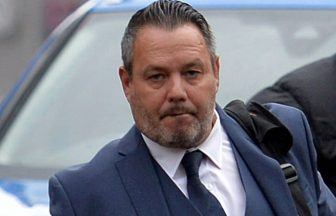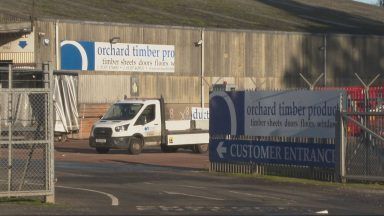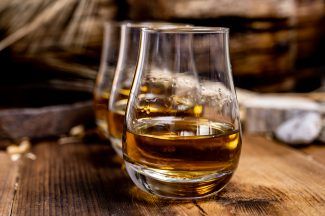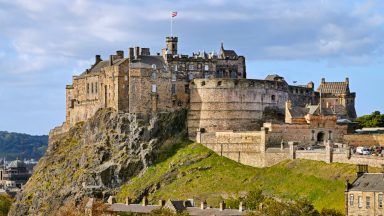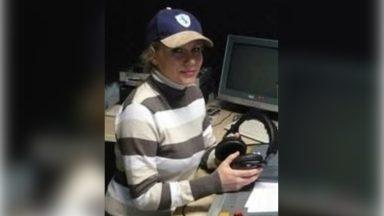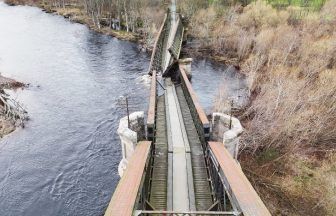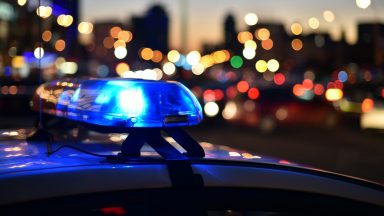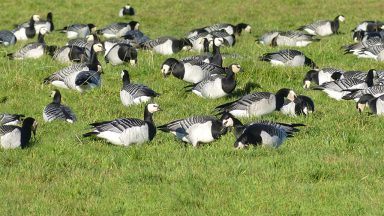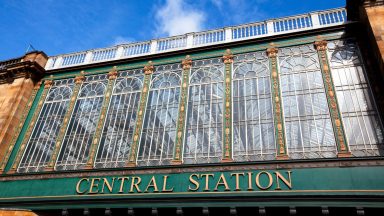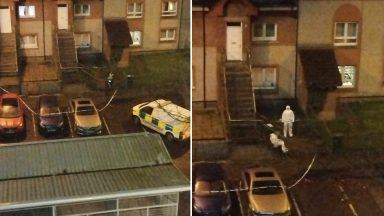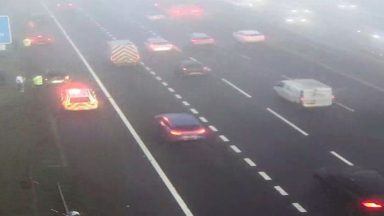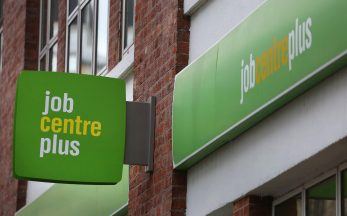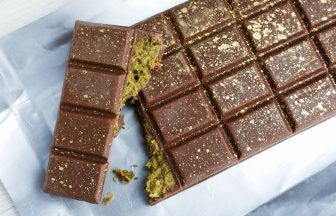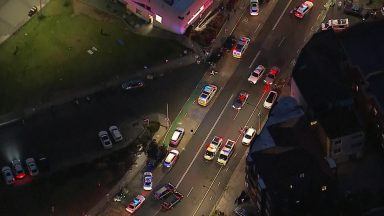Ten years have passed since Nancy Primrose and her sister went to watch a gig at the Clutha pub on the banks of the River Clyde.
It was a night that started with anticipation and excitement but ended in tragedy.
Seven customers – John McGarrigle, Mark O’Prey, Gary Arthur, Colin Gibson, Robert Jenkins, Samuel McGhee and Joe Cusker – lost their lives when a police helicopter plunged through the bar’s roof on November 29, 2013.
Helicopter pilot David Traill and crewmates Tony Collins and Kirsty Nelis also died in the tragedy.
Nancy, now 65, comes back to the Clutha each anniversary of the crash along with her sister, Ann.
She has also forged a strong relationship with fellow survivor Mary Kavanagh, whose partner Robert was killed in the crash.
Nancy told STV News: “It has brought me and Mary together, as there are a lot of memories from that night that I don’t have, and talking to Mary gave me some of these memories back.”
Nancy recalls waking up outside the pub on the night of the crash and realising her sister Ann wasn’t beside her.
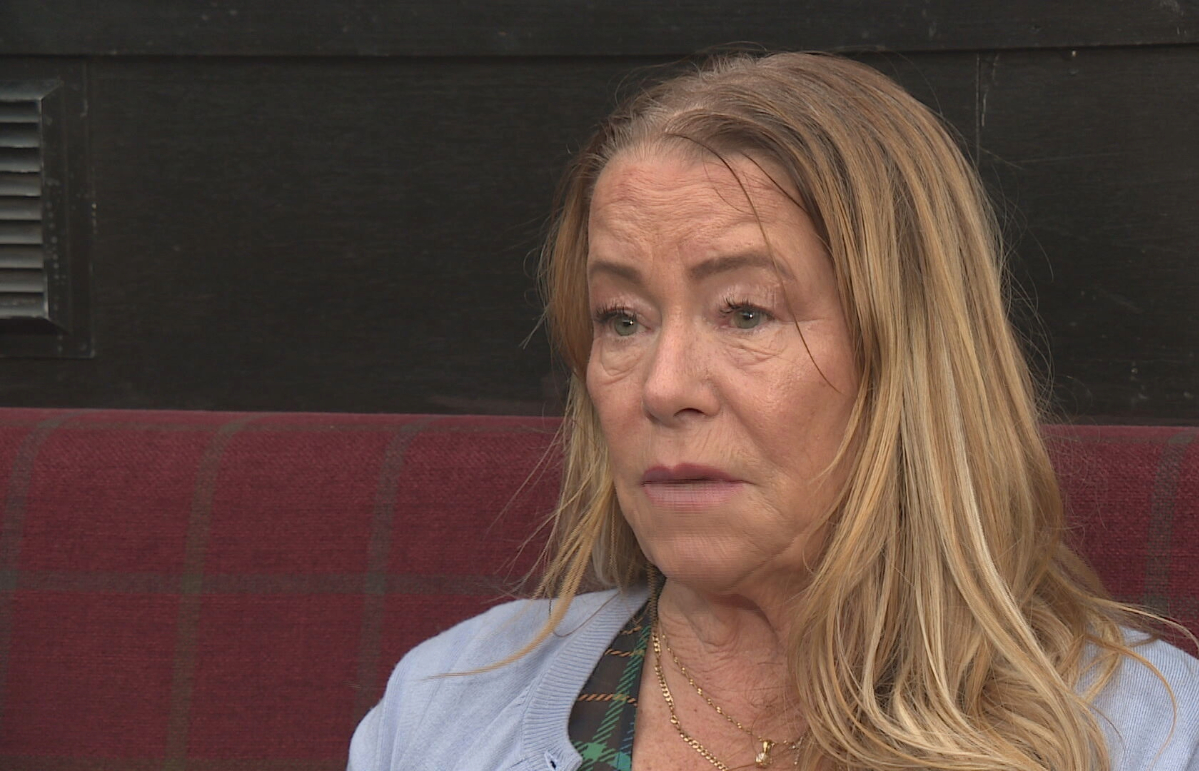 STV News
STV News“I was hysterical,” she said. “I didn’t know how badly injured I was at the time and I got up and ran towards the Clutha and Mary stopped me.
“I remember putting drinks up on the counter and putting change into my handbag – and up I went. I remember getting lifted up and that was probably the thud of the helicopter crashing down.
“At one point it was dark and I remember trying to move debris from my face and trying to pat around to feel where I was. Next thing I remember being outside.
“One of the customers, a man called Martin, pulled me out. I said to him afterwards ‘you deserve a medal’. I felt he had saved my life. He said he was one of many doing what he could to help people out.”
Nancy says she went back to the area around the Clutha the day after the crash and couldn’t believe the scene.
“I remember me and my sister walking towards the Clutha and you could have heard a pin drop,” she said. “There was just silence and what I could see in front of me was just unbelievable.
“The survivor’s guilt is horrible, just horrible. You can’t really describe it to anybody. Around the time of the anniversary, I get night sweats and this week I’ve not been sleeping well. I find talking about it helps. Talking is therapy.
“The way in which the people of Glasgow responded felt like a big cuddle at the time. It was lovely and we got a lot of that in the beginning.”
Mary Kavanagh
Mary and her partner Robert headed out to watch her brother’s band on the night of the crash.
But when the gig was cancelled, they decided to go the Clutha instead.
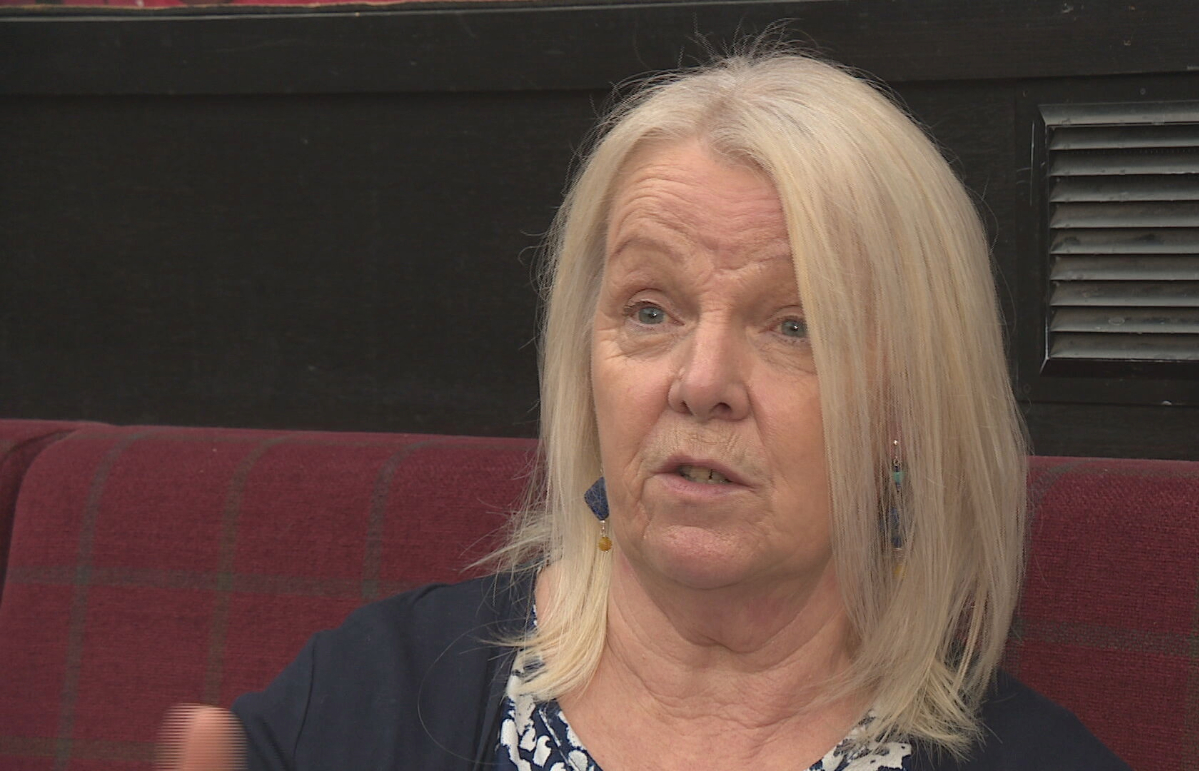 STV News
STV NewsMary had never been in the pub before she met Robert, but now she feels it helps with her recovery after his death as the community spirit and music in the venue makes her feel closer to him.
Recalling the night of the crash, Mary told STV News: “(I) just remember Nancy coming out the pub and then her trying to get back in – and me holding her back – she had no memory of that.
“Months later, we were at some event and she said ‘I wish I could remember what happened that night’ and I filled her in. She was just amazed that it was me that had been holding her back.
“I remember all that but as time went on I had false memories of what actually happened when the helicopter came through the roof. I had nightmares and I had to have therapy to help with that.
“We got here around 9.40pm and we went in the first door and it was really busy so we moved to the stage area. Robert said he was going to the toilet and then he’d get us drinks on the way back and that was it.
“When the thud happened, someone shouted ‘oh one of the speakers has blown’ and then when the helicopter came through, everything just went dark and there was dust everywhere. When I got outside I could see the tail of the helicopter, I still couldn’t think what had happened.
“While I was standing outside, I was thinking Robert is not coming out. I think it was early in the morning when I think an acceptance came over me that he wasn’t going to get out. It wasn’t until the Sunday afternoon that I was told that they had found Robert’s body.”
Mary, who now works for the Clutha Trust, said the community showed tremendous support at the time of the crash – support that she believes continues to this very day.
“The pubs, both the Clutha and Scotia, were a community before but they are even more now,” she said.
“Every time I come down I get a sense of Robert here. I had never been in the Clutha before I’d met Robert. He loved the music. It’s because of him that I’m part of the Clutha family and part of the Clutha Trust. Working for the trust has really helped my recovery.”
The bartender – Diane McLeary
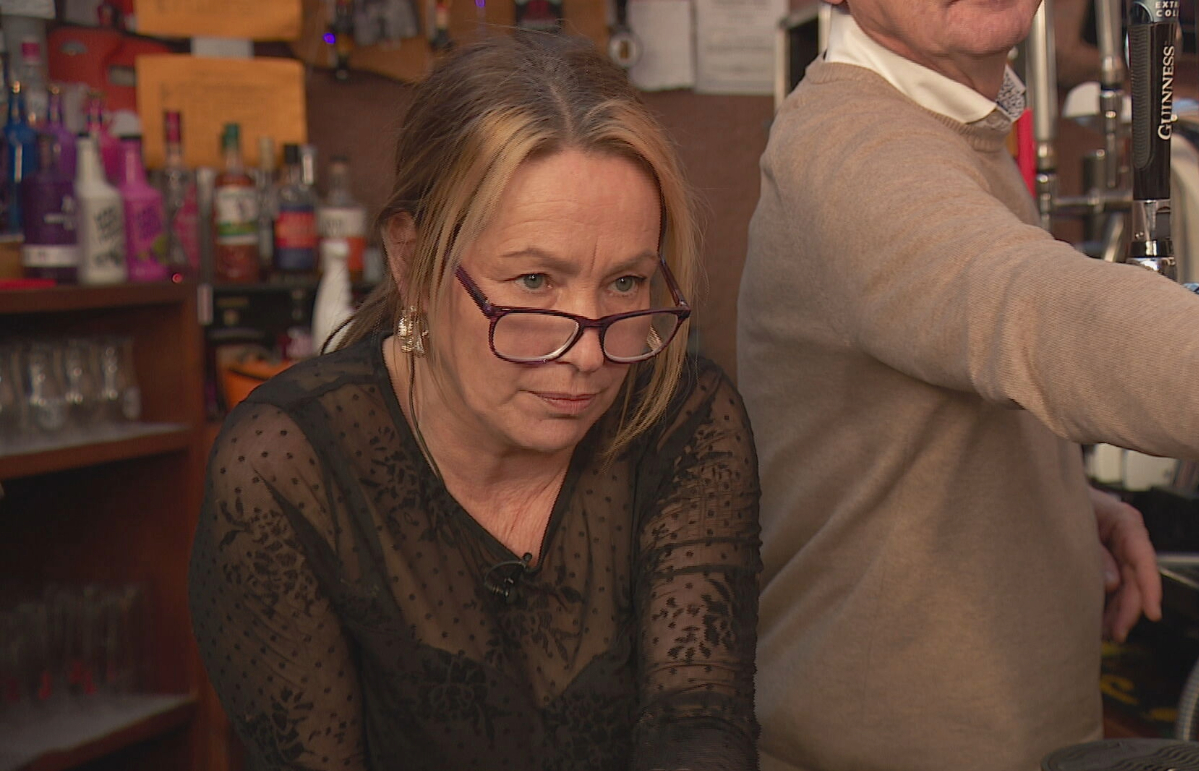 STV News
STV NewsDiane McLeary worked regularly behind the bar at the Clutha but on the night of the crash she was on a shift at the Scotia pub across the road.
“When there is a band playing in the Scotia, its very enclosed so you don’t hear anything,” she explained to STV News. The door opened and two men came in covered in debris.
“They said the Clutha just blew up. I opened the doors and it was so surreal. Then everyone started coming in and it was then I could hear people screaming, the ambulances and the fire engines. It was like something out of a movie set.“
Diane will be working at the Clutha on Wednesday night as people gather for a special gig to mark a decade since the tragedy.
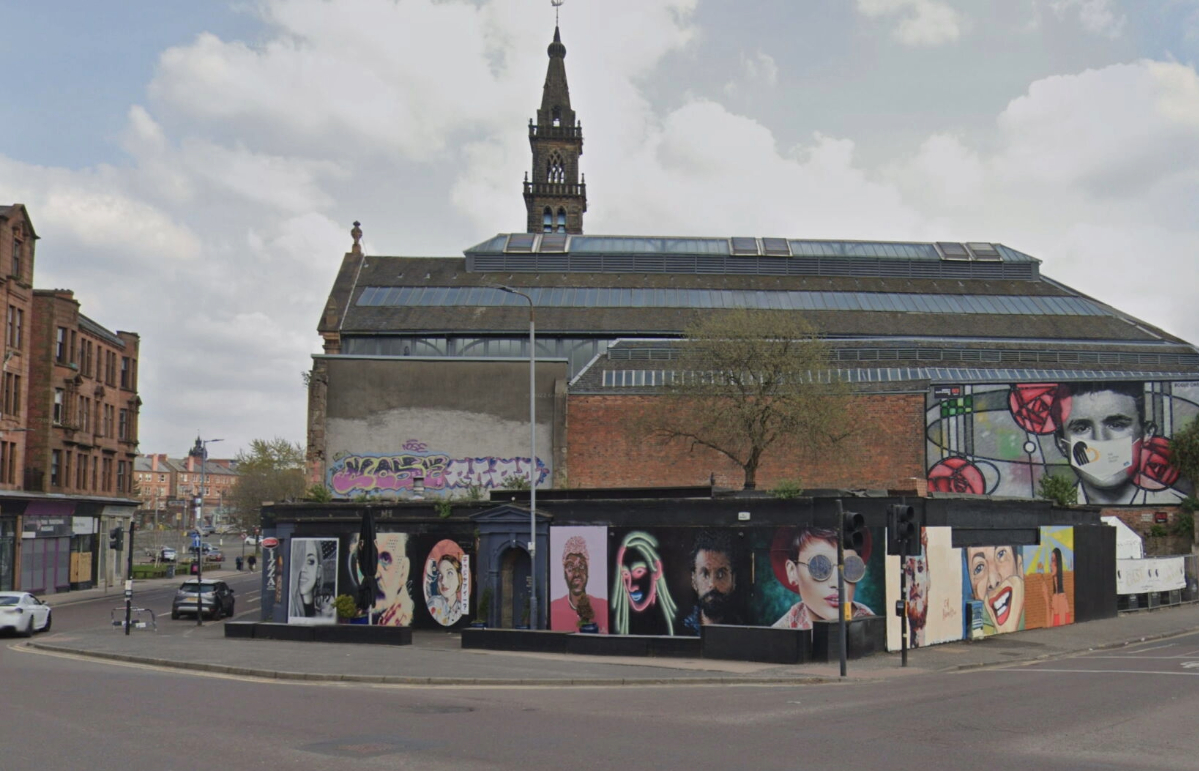 STV News
STV NewsShe said: “To this day, people are always coming into the bar. They tell us “oh my dad was supposed to be in that night’ or ‘my granny used to come in here’.
“I know there are a lot of people out there still affected by what they saw that night or losing a loved one. A lot of people who come in and you see from their faces what this place means to them. For some its just raw emotion.”
What did the fatal accident inquiry conclude?
A fatal accident inquiry into the tragedy concluded the crash happened after the helicopter’s engines flamed out sequentially while it was airborne, as a result of fuel starvation due to depletion of the contents of the supply tank.
The accident was caused by pilot Captain David Traill’s failure to ensure that at least one of the fuel transfer pump switches was set to on, the inquiry found.
In his determination, Sheriff Principal Craig Turnbull said the accident could have been prevented if the pilot had followed emergency procedures relating to low fuel warnings.
The inquiry heard five low fuel warnings were acknowledged during the G-SPAO helicopter’s final flight.
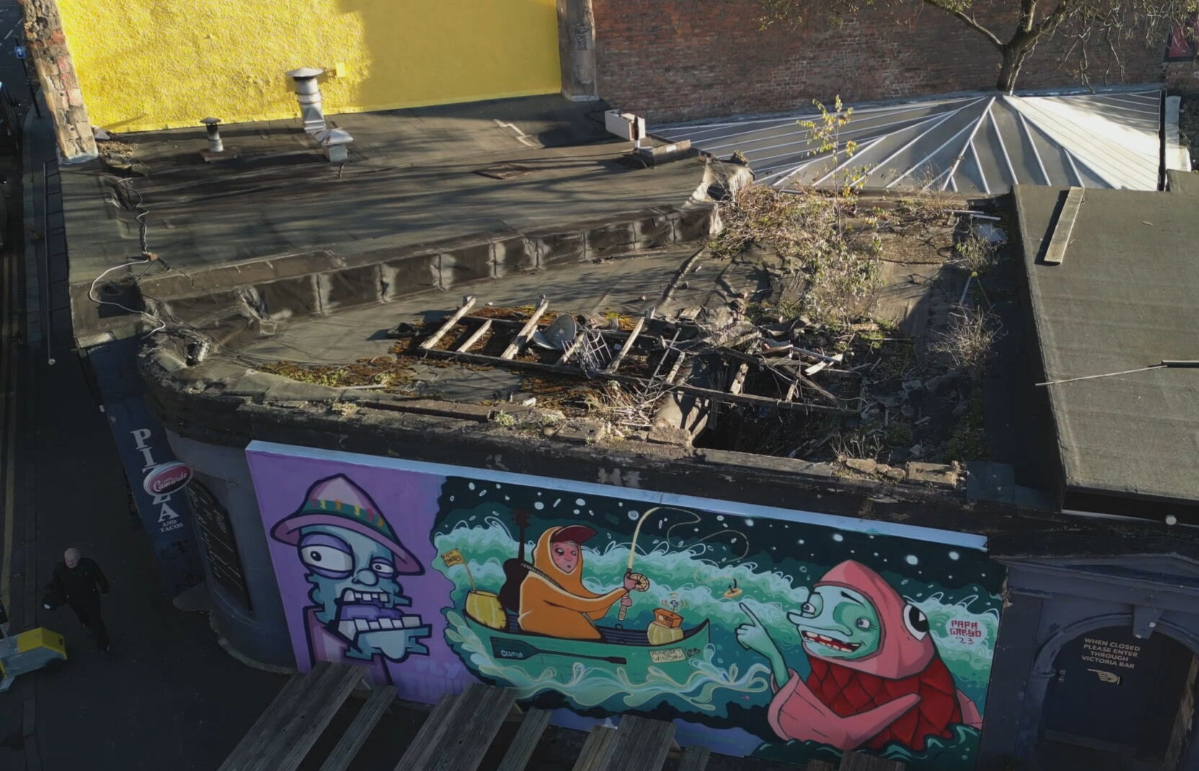 STV News
STV NewsMr Turnbull said that by not carrying out the actions set out in the pilot’s checklist, Captain Traill “consciously took a risk in proceeding on the basis that the low fuel warnings were in some way erroneous”, with fatal consequences.
Mr Traill’s fiancee, Dr Lucy Thomas, said the inquiry report did no justice to the memories of the victims.
“It insults the intelligence of those who know of the evidence presented at the inquiry and are aware of the content of the initial AAIB (Air Accidents Investigation Branch) report.
“Disbelief has been expressed by many family members of those who died and by members of the public at the conclusion drawn by Sheriff Principal Turnbull, who incredulously stated that Dave consciously took risks which caused the accident.
“This expression of disbelief speaks volumes and means much more to me than the opinion of the sheriff principal.
“I find it distressing and incomprehensible that given months, not moments, to consider the facts, the sheriff principal has come to this conclusion.”
Follow STV News on WhatsApp
Scan the QR code on your mobile device for all the latest news from around the country




